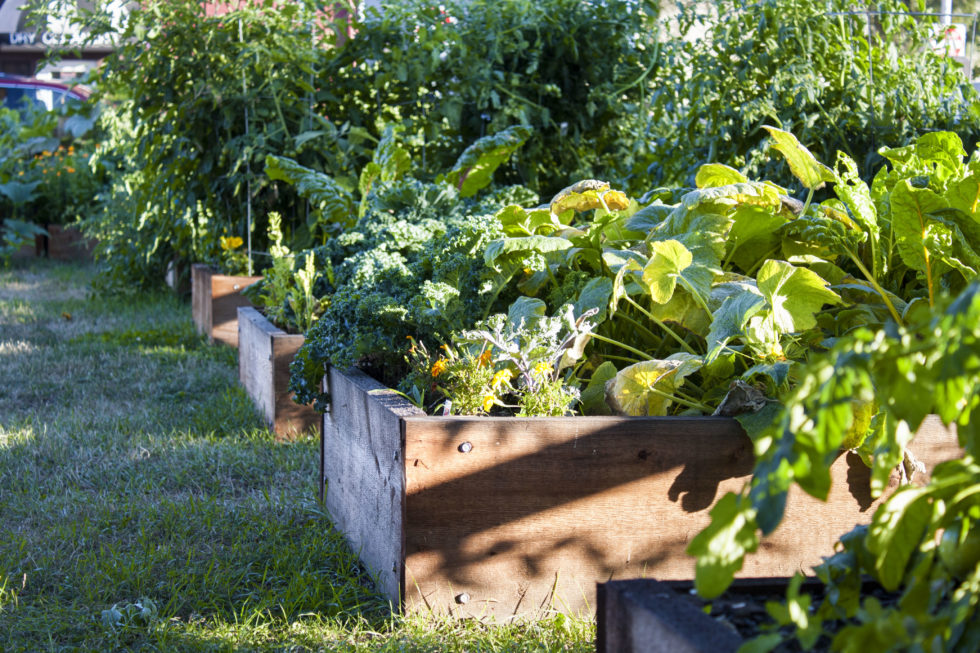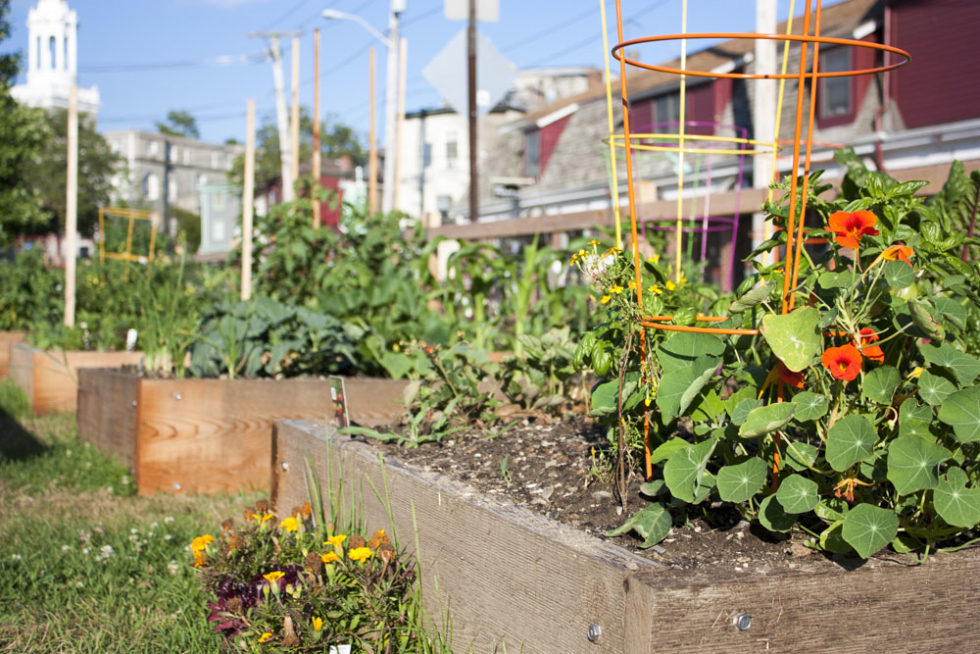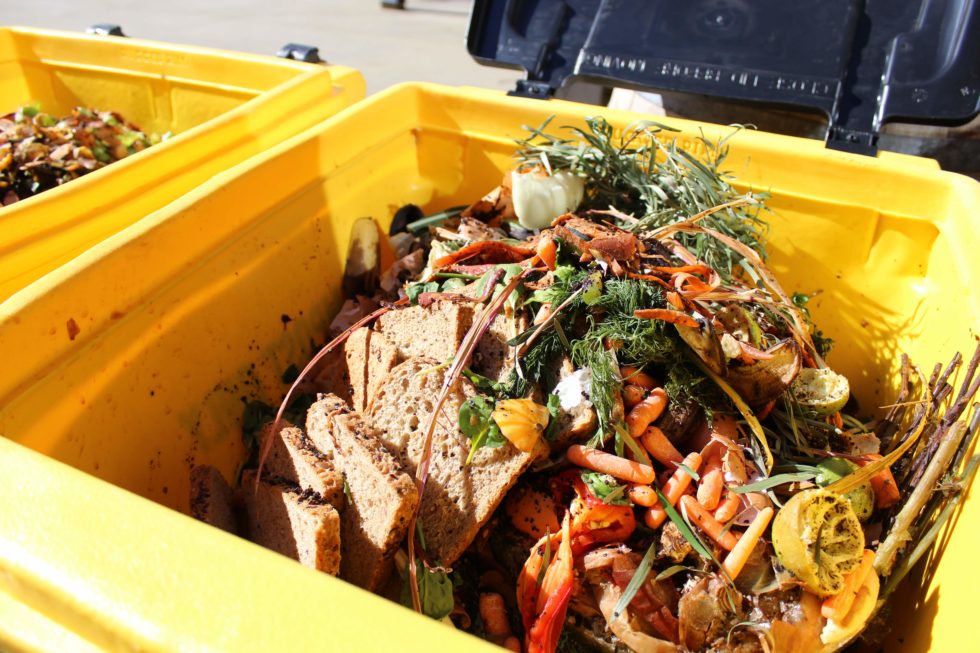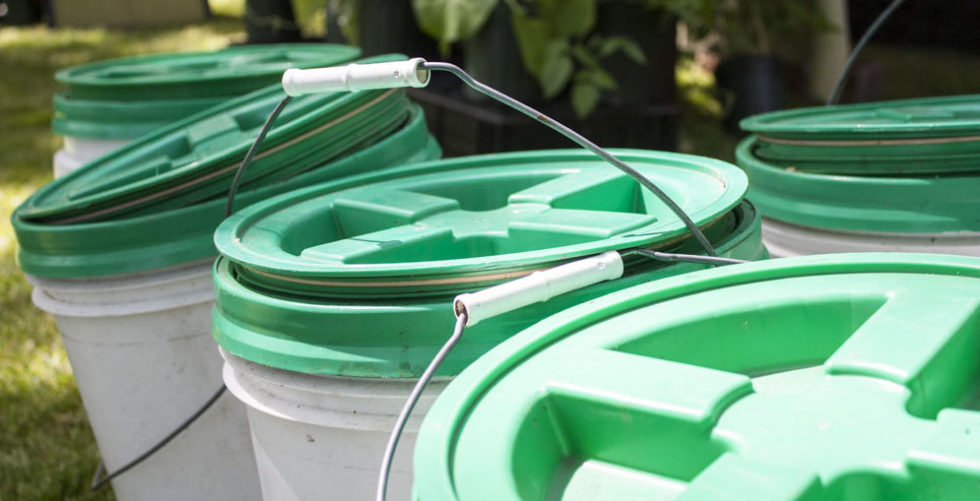What started as a simple discussion about a community farm between a coalition of island organizations, informally known as Island Commons in 2008, has since transformed into a grassroots movement led by Aquidneck Community Table (ACT) that connects, enhances, and educates the public about the importance of growing and strengthening our food system.
“A table represents a place to eat and come together,” says executive director, Bevan Linsley. “Aquidneck Community Table is a gathering of the Aquidneck Island community around the subject of our local food system. The acronym ACT embodies our goal to put it all into ACTion, while thinking globally and acting locally.”
Formally established in January 2016 with the merging of Island Commons, the Growers Market and Sustainable Aquidneck, ACT brings an in-depth understanding of food and agricultural issues, woven around the health of our bodies, our community, our land, and their inextricable future.
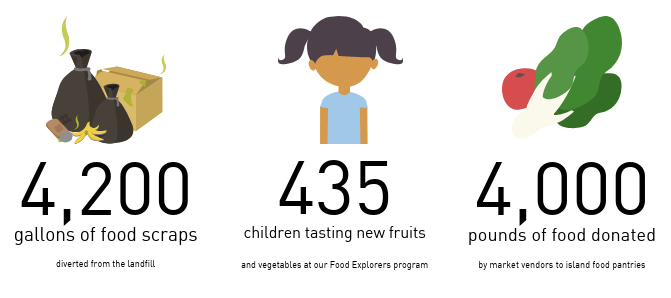
The local food hero works on its mission to grow a healthy local food system that is accessible to all on Aquidneck Island through the distribution of fresh foods at farmers markets, education in school and community gardens, programs that inspire young people to love healthy foods, as well as through a food-scrap collection program to divert food from the waste stream.
“Our programs and conversations explore solutions to current and future challenges to community health,” says Mary-Kate Kane, program coordinator at ACT. The group is not afraid to ask the hard questions: what are the consequences of climate change to our food system? Is a healthy food system available to all? What is the legacy we want to leave our children and grandchildren?
The organization has experienced tremendous growth and success over the years. In 2018, ACT members collected more than 4,200 gallons of food scraps and kept them from heading to the landfill. The food scraps were instead composted at Island Community Farms, where the compost was used to improve soil health in community garden plots, enabling islanders to grow more nutrient-rich food.
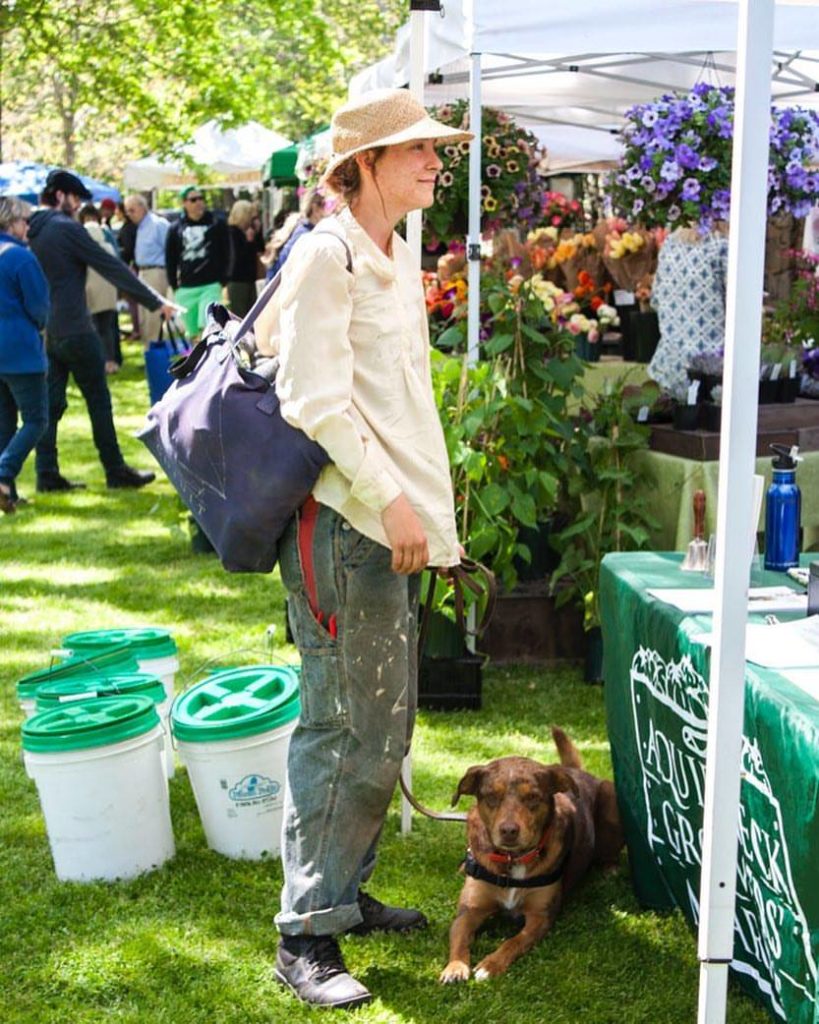
ACT’s local leadership in sustainable agriculture and food wast diversion makes them a perfect addition to the Healthy Soils, Healthy Seas Rhode Island (HSHSRI) project team. The multi-year initiative funded by 11th Hour Racing and in partnership with Clean Ocean Access, Rhodeside Revival, and The Compost Plant seeks to inspire long-lasting environmentally responsible behavior by tackling ocean pollution at its root: on land. As one of the three HSHSRI partners , ACT will continue to lead the local food movement and spark long-lasting behavior change that empowers people to reevaluate their waste footprints and build healthier communities.
Composting just got easier with a new discounted price!
ACT currently offers a food scrap drop-off service at its Saturday farmer’s market at Newport Vineyards in Middletown, and will offer the service at the Wednesday farmer’s market on Memorial Boulevard beginning in May.
“The food scrap drop-off program at the farmer’s market allows residents who may not have the space to compost at home to contribute to a more sustainable future by diverting their food scraps from the waste stream and instead put them to good use, building healthy soils,” says Kane. As part of the HSHSRI program, new ACT members on Aquidneck Island can enjoy the same drop-off services at a subsidized rate. Interested in getting started?
Step 1: Sign up and choose a service
To join the HSHSRI program, new ACT customers must sign up online here. By signing up for the food scrap drop-off, customers will be prompted to sign a Memorandum of Understanding (MOU) that asks them to recruit 1 other member to join the program and act as an ambassador by posting a lawn sign indicating that they compost with HSHSRI. Once the MOU is signed, a confirmation email will be sent with a 5 digit discount code.
Customers have the option to sign up to be a citizen scientist and provide ACT with metrics each week on the weight of their food scraps, recyclables and trash. Citizen scientist customers will be provided with a hanging scale and kitchen bucket to assist in collecting metrics.
Step 2: Pay the tab and pick up your bucket
The next step is to bring the discount code to the market and pay the annual membership dues at ACT’s “Sustainability Stall.” ACT will then provide customers with a 5-gallon bucket with seal-tight lid, 2019 membership card (which customers present each time they drop-off), and the HSHSRI yard sign.
Step 3: Compost and make nutrient rich soil
Buckets of food scraps can be emptied into a large 48-gallon bin at the farmer’s market that is picked up weekly by HSHSRI partner, The Compost Plant. Food scraps then travel to North Smithfield where they are re-purposed and turned into nutrient-rich compost at Buxton Hollow Farm. At the Wednesday farmer’s market on Memorial Boulevard, HSHSRI partner, Rhodeside Revival, will be collecting food scraps and transporting them to Earth Care Farm to be turned into compost, as well.
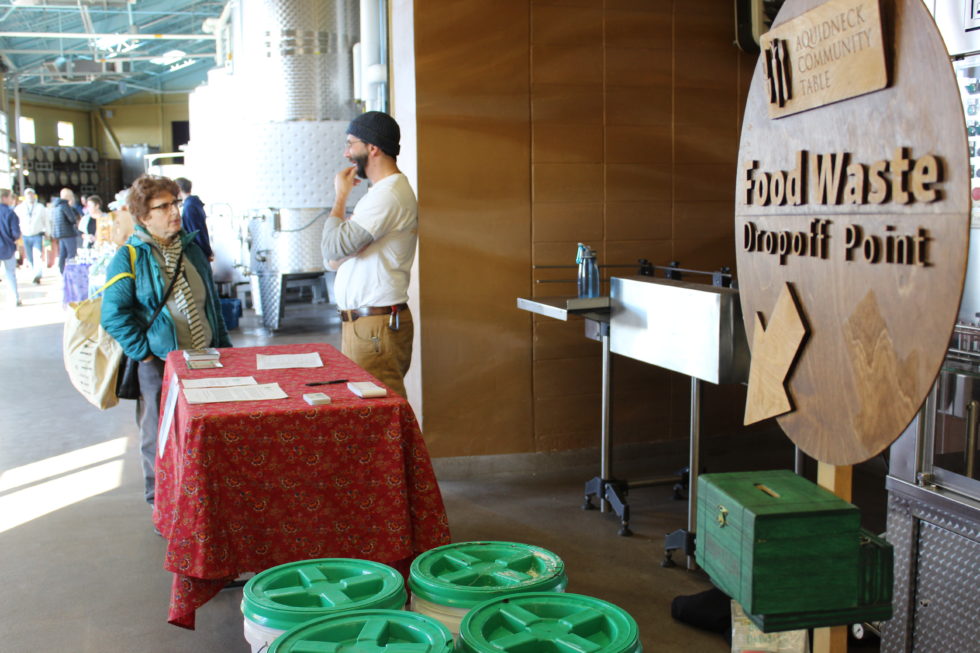
“Sometimes our planet’s challenges seem overwhelming and too big to tackle,” says Jason Spitalnik, who manages ACT’s Island Community and Farms project. “Composting is a small, yet important way to make a contribution to a healthier future, one that all of us are capable of taking part in, whether it’s composting in your backyard, connecting with a neighbor who is composting, having your food scraps picked up on your curbside, or dropping them off at the farmer’s market.”
The HSHSRI program will allow the development of the next stages of food scrap collection at the farmers market so that local organizations like ACT have the infrastructure to support greater community participation. Composting has wide-ranging positive benefits that will reduce the effects of climate change, build a healthier community and a more resilient food system.


